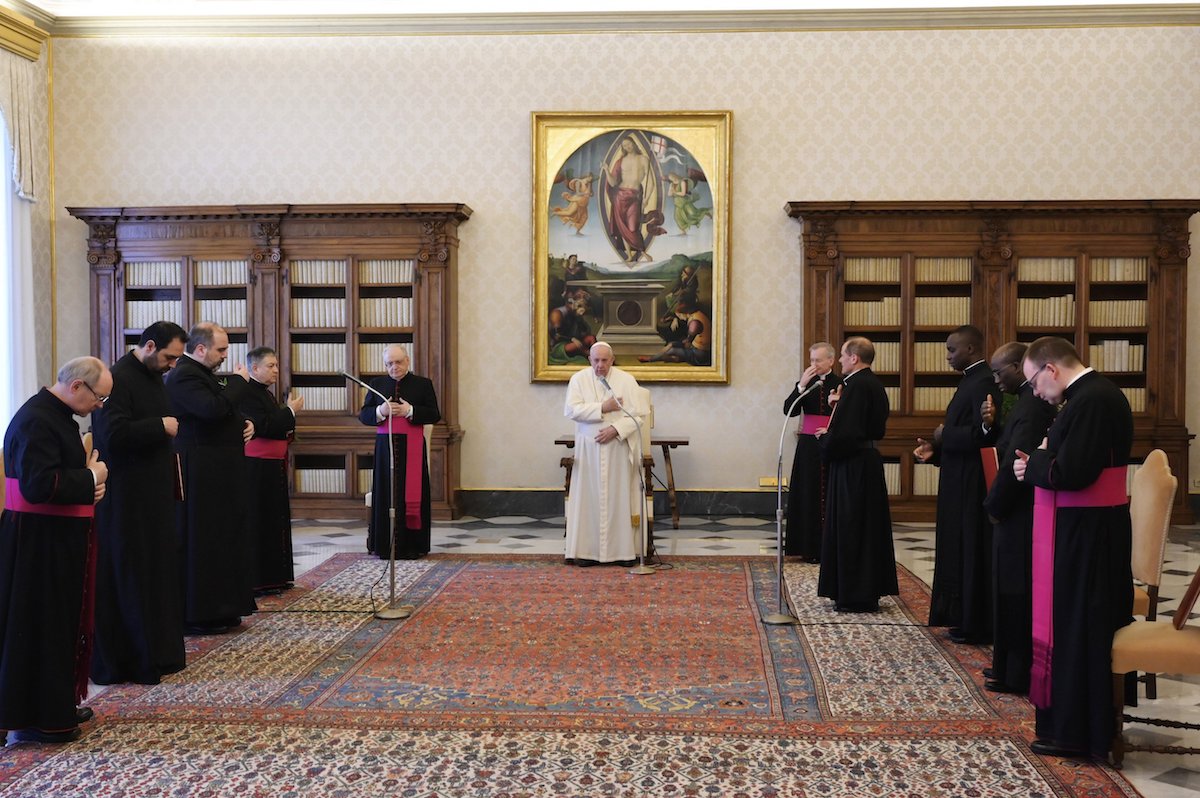Pope Francis renewed his appeal to the international community to forgive the debt of poor countries whose financial burdens have worsened due to the coronavirus pandemic.
In a message sent April 21 to participants at the Ibero-American Summit, the pope said debt forgiveness “is a gesture that will help people to develop and to have access to vaccines, health, education and employment.”
“Such a gesture must be accompanied by the implementation of sound economic policies and good governance that reaches the poorest,” he said.
According to its website, the summit brings together representatives of 22 Spanish and Portuguese-speaking countries in order to strengthen “a well-established space for Ibero-American dialogue.”
In his message, the pope remembered the victims of the pandemic, which “has struck people of every culture, creed, social and economic level.”
The pope said vaccinations “should be considered a ‘universal common good,'” and he encouraged efforts to ensure “an equitable distribution of vaccines, not based on purely economic criteria, but taking into account the needs of all, especially the most vulnerable and needy.”
The pandemic, he continued, provides an opportunity “to rethink the relationship between the person and the economy.”
“We must therefore join forces to create a new horizon of expectations where economic profit is not the main objective, but the protection of human life” is, the pope said. “In this sense, it is urgent to consider a model of recovery capable of generating new, more inclusive and sustainable solutions.”
Echoing a suggestion he made April 8 to the World Bank, Pope Francis called for measures that would “allow access to external financing” through “‘special drawing rights.'”
According to the International Monetary Fund, special drawing rights, commonly known as SDR, are international reserve assets that can “play a role in providing liquidity and supplementing member countries’ official reserves,” especially during times of financial crisis.
The pope said SDR funds “can be used to promote and encourage economic and productive development, so that everyone can emerge from the current situation with the best chance of recovery.”
“None of this will be possible without a strong political will that has the courage to decide to change things, especially priorities, so that the poor are not the ones who pay the highest cost of these tragedies that are striking our human family,” he said.






